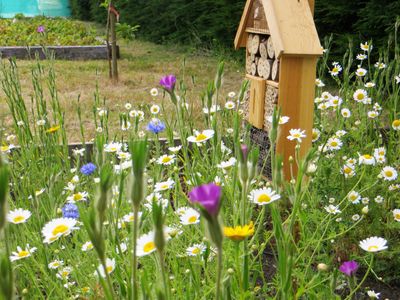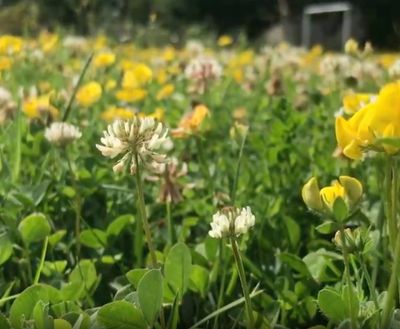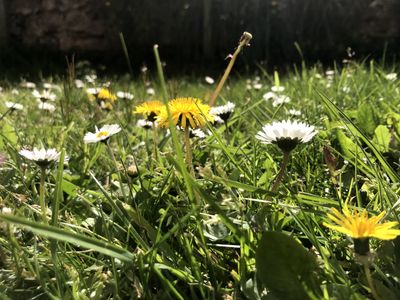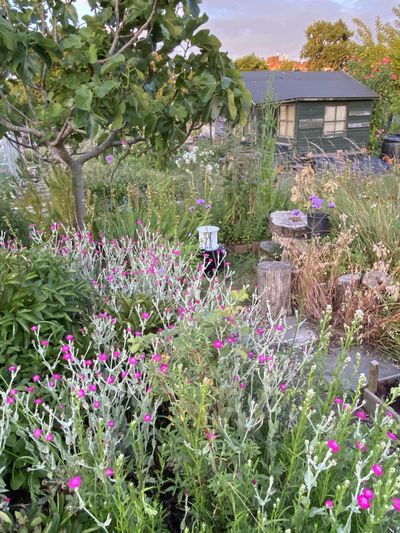Embrace Britain’s roots and scatter native wildflowers this spring
Published:
Read Time: 3 mins
When we consider the plants and flowers we want to grow in the garden, many may not stop to think about whether they are native species or not. We will look at other factors such as colour, scent, perennial or annuals and perhaps if they are beneficial to pollinators. But the importance of planting native shouldn’t be overlooked, when in fact planting native is the best way to help our local bees, butterflies, bugs and even mammals flourish.
Native plants are those that have occurred naturally in a particular place without human introduction. Because they are so used to the conditions the UK has to offer, they survive and thrive well without much intervention from us. In Britain, we have a huge variety of native species, from large broad oak trees to wispy wildflowers, but a 2023 study has revealed that over half of our plant species are non-native, and that native varieties are declining.
Here, Dr Ana Attlee, conservation scientist and co-founder of expert wildflower company, Seedball, has shared why it is important to plant native wildflowers in your garden.
They have evolved alongside native wildlife
The UK’s native flora and fauna has been evolving for millennia, through all the changes in climate, differences in rainfall and all the other challenges in between! Evolving alongside them is native wildlife, the bees, bugs, butterflies, and mammals that depend on the flowers for food, shelter, and sustenance. Some pollinators even depend on these native wildflowers to lay their eggs. This symbiotic relationship means that they play a vital role in supporting our important insects and other wildlife.
It’s known that on a single summer day, one acre of wildflower meadow can produce up to 1kg of nectar, that’s enough to support approximately 96,000 honeybees each day, and with the area covered by gardens being bigger than all of our nature reserves combined imagine the impact we could have if every garden in the UK had some native wildflowers!
Wildflowers store carbon
Native plants, including wildflowers also play a vital role in storing carbon through the process of photosynthesis. During the process, carbon dioxide is absorbed by the plant and transformed into organic matter that is then stored in the soil or used by the wildflowers for growth and reproduction. Both non-native and native wildflowers absorb carbon equally, but native species can be faster growing and more resilient to environmental adjustment. They have adapted to the inconsistent temperatures, water and rainfall changes and nutrient deficient soils, they are super hardy and tough! This means wildflowers can grow in places where other plants might struggle, so if your garden has particularly poor growing conditions, chances are it’ll be ideal for native wildflowers.
They’re part of our heritage
Literature often depicts the British countryside by the plant life that illustrates it. The pretty primrose cottages, the thistles of Scotland, and Welsh daffodils. Not only are these flowers beautiful, but they also have stories to tell about our history and ancient folklore. With the news that we are losing so much of our native species, with 1 in 6 UK species at risk of extinction, scattering some wildflower seed balls into the garden is a wonderfully simple yet stunning way to help flower populations increase, as well as the wildlife that depends on them and keeps them in our future, as well as our past.
To find out more about Seedball and to explore its range of wildflower seed balls and products, visit the website at www.seedball.co.uk
Ends
Editors notes
Seedball was founded by two conservation scientists wanting to boost biodiversity and help wildlife.
Seedball Ltd is an innovative organisation on a mission to help increase the abundance of British wildflowers and the wildlife that depends upon them.
Owned by Project Maya – a non-profit enterprise - Seedball manufactures wildflower seed balls using a unique innovation of wildflower seeds mixed with clay, peat-free compost and chilli powder to naturally protect seeds from predators. Its products are sold in over 500 stores in the UK, including Kew Gardens, The Woodland Trust and Blue Diamond Garden Centres, as well as online retailers such as Crocus and Marie Curie. Each year, Seedball also donates products to hundreds of schools and community groups to help support their nature projects.




